Related Research Articles

The Socialist Unity Party of Germany was the founding and ruling party of the German Democratic Republic from the country's foundation in 1949 until its dissolution after the Peaceful Revolution in 1989. It was a Marxist–Leninist communist party, established in 1946 as a merger of the East German branches of the Communist Party of Germany and Social Democratic Party of Germany.
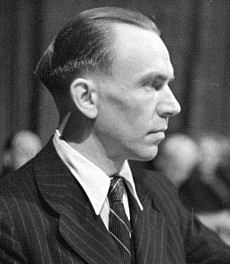
Anton Ackermann was an East German politician. In 1953, he briefly served as Minister of Foreign Affairs.

Albert Norden was a German communist politician.

Erich Mückenberger was a German socialist politician. He began his political career in the Social Democratic Party of Germany (SPD). He became a member of the Socialist Unity Party of Germany (SED) when the East German branches of SPD and the Communist Party of Germany merged after the Second World War. Mückenberger was one of the most high-ranking former Social Democrats in the German Democratic Republic and held several positions in the SED.

Robert Siewert was a German politician who fought in the German Resistance against National Socialism. He was a survivor of Buchenwald concentration camp, where he helped save the life of Stefan Jerzy Zweig, among others.
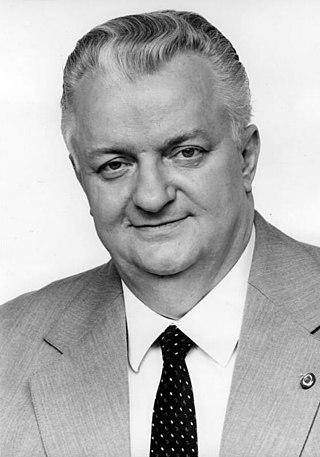
Werner Krolikowski was a German politician and high-ranking party functionary of the Socialist Unity Party (SED).

Franz Dahlem was a German politician. Dahlem was a leading official of the Communist Party of Germany (KPD) and, after 1945, of East Germany's ruling Socialist Unity Party (SED).
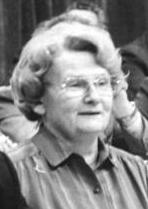
Ursula Ragwitz is a former senior official of the ruling East German Socialist Unity Party. She started her career as a primary school teacher, and rose to become a member of the powerful Party Central Committee between 1981 and 1989, undertaking various leadership roles in respect of the country's highly politicised culture sector.
Günter Heyden was a German professor of philosophy and a sociologist. Between 1969 and 1989 he was the director of the East Berlin basedInstitute for Marxism–Leninism.
Herta Geffke was a German activist and politician who resisted Nazism. After 1945 she became a member of the Central Party Control Commission of the SED in the Soviet occupation zone, identified as a "true Stalinist" and feared on account of her interrogation methods.
Käthe Dahlem was a German political activist who, after being forced into exile, became an anti-fascist Resistance activist, participating in the Spanish Civil War and, subsequently, again based in France. After 1945 she became a public official in the Soviet occupation zone. She was retired on health grounds in July 1949 and was subsequently caught up in her husband's difficulties with the ruling party, the party first secretary, Walter Ulbricht and other leading party comrades who had spent the war years in Moscow. By the 1960s, however, the authorities were happy to honour her pre-war and wartime contribution.

Margarete Müller is a German retired politician who was a member of the State Council of East Germany and, between 1963 and 1989, of the Central Committee of the Socialist Unity Party of Germany (SED). She was a candidate member of the SED politburo until the end of the one-party system.

Hermann Matern was a German communist politician (KPD) and high ranking functionary of the Socialist Unity Party of Germany in the German Democratic Republic.

Werner Walde was a German politician and party functionary of the Socialist Unity Party (SED).

Werner Eberlein was a German politician and high-ranking party functionary of the Socialist Unity Party (SED).
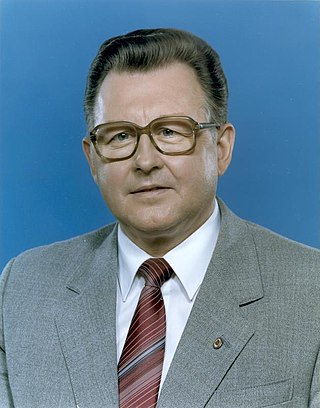
Hans-Joachim Böhme was a German politician and high-ranking party functionary of the Socialist Unity Party (SED).

Werner Felfe was a German politician and high-ranking party functionary of the Socialist Unity Party (SED).

Gerhard Grüneberg was a German politician and high-ranking party functionary of the Socialist Unity Party (SED).
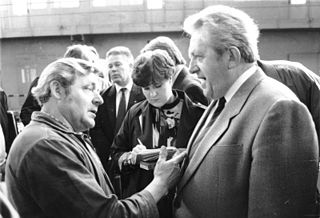
Gerhard Müller was a German teacher, politician and party functionary of the Socialist Unity Party (SED).

Paul Fröhlich was a German politician and high-ranking party functionary of the Socialist Unity Party (SED).
References
- 1 2 3 4 5 6 7 8 9 10 "Zentrale Parteikontrollkommission der SED". www.argus.bstu.bundesarchiv.de. German Federal Archives . Retrieved 2023-12-17.
- 1 2 3 4 5 6 7 Ammer, Thomas. "Die Machthierarchie der SED". enquete-online.de/. Enquete-Kommissionen zur Aufarbeitung der SED-Diktatur. p. 841.
- ↑ Dieckmann, Christoph (2020-02-08). "SED-Politbüro: Ausschluss, einstimmig". Die Zeit (in German). ISSN 0044-2070 . Retrieved 2023-12-18.
- 1 2 3 4 "Ausschluss. Das Politbüro vor dem Parteigericht - Rosa-Luxemburg-Stiftung". www.rosalux.de (in German). Rosa Luxemburg Foundation. 2020-01-10. Retrieved 2023-12-18.
- ↑ "Protokoll der 12. Tagung des SED-Zentralkomitees, 3. Dezember 1989 (Abschrift eines Tonmitschnitts)". www.chronik-der-mauer.de. Chronik der Mauer. Retrieved 2023-12-18.
- 1 2 3 Prokop, Siegfried (2020-03-26). "Ultima Ratio in dramatischer Zeit". nd-aktuell.de (in German). Neues Deutschland . Retrieved 2023-12-18.
- ↑ "Sitzungsprotokoll der Parteikontrollkommission der SED-Kreisleitung im MfS | Mediathek des Stasi-Unterlagen-Archivs". www.stasi-mediathek.de (in German). German Federal Archives . Retrieved 2023-12-17.
- ↑ "Kreisleitungen, Stadt- und Stadtbezirksleitungen". www.archiv.sachsen.de (in German). Sächsisches Staatsarchiv. Retrieved 2023-12-17.
- ↑ "DDR-Vergangenheit: Früheres Politbüro-Mitglied gestorben". www.mz.de (in German). Mitteldeutsche Zeitung . Retrieved 2023-12-17.
- ↑ "3.1 Sitzungen der ZPKK 1972 - 1989". www.argus.bstu.bundesarchiv.de. German Federal Archives . Retrieved 2023-11-26.
- ↑ "Geffke, Herta". www.bundesstiftung-aufarbeitung.de (in German). Federal Foundation for the Reappraisal of the SED Dictatorship . Retrieved 2023-12-17.
- ↑ "Juch, Heinz". www.bundesstiftung-aufarbeitung.de (in German). Federal Foundation for the Reappraisal of the SED Dictatorship . Retrieved 2023-12-17.
- ↑ "Müller, Werner". www.bundesstiftung-aufarbeitung.de (in German). Federal Foundation for the Reappraisal of the SED Dictatorship . Retrieved 2023-12-17.
- 1 2 Ammer, Thomas. "Die Machthierarchie der SED". enquete-online.de/. Enquete-Kommissionen zur Aufarbeitung der SED-Diktatur. p. 842.